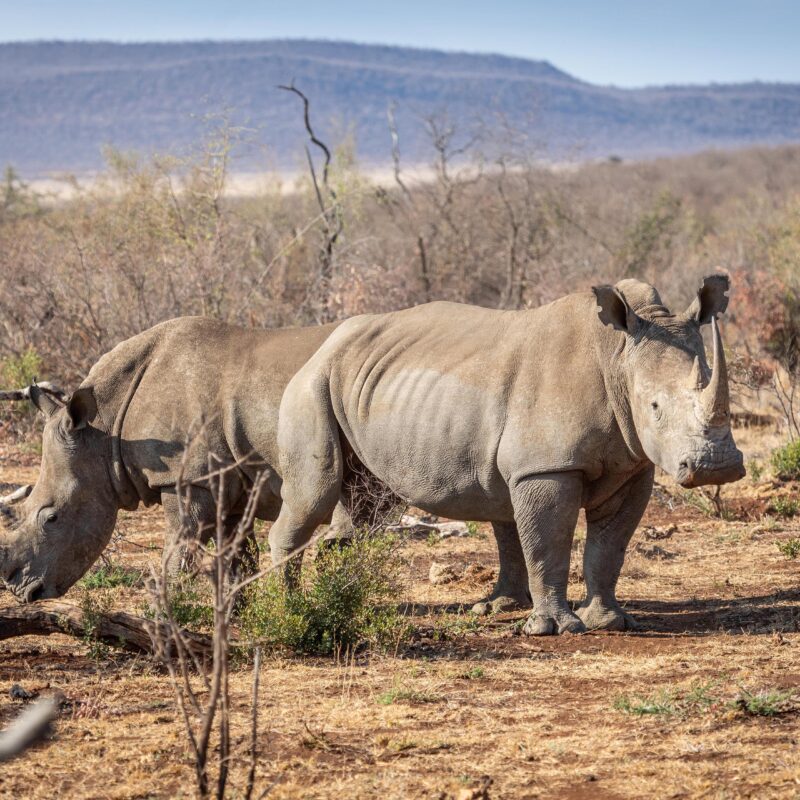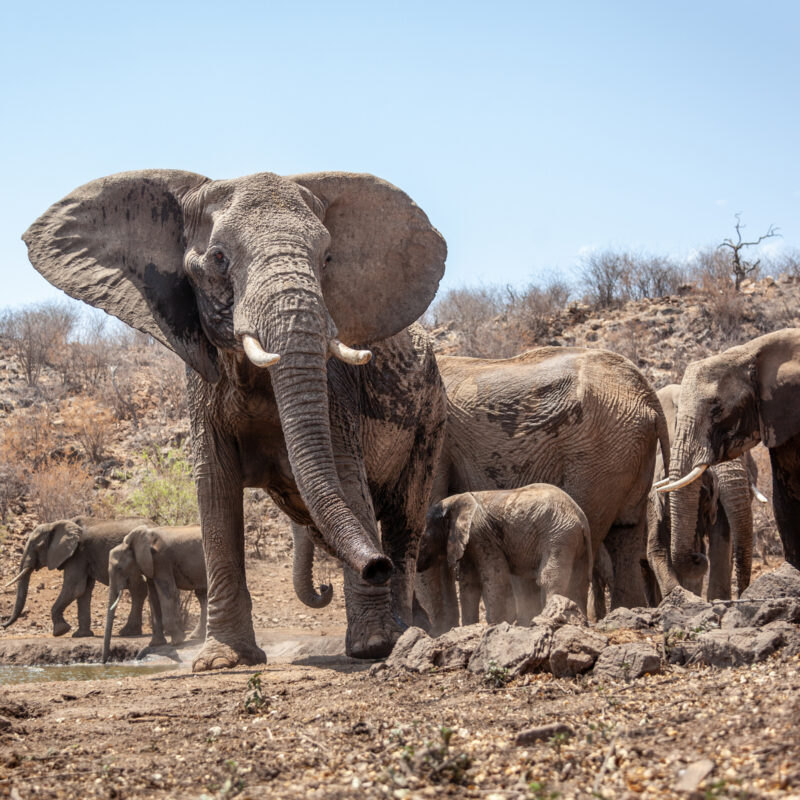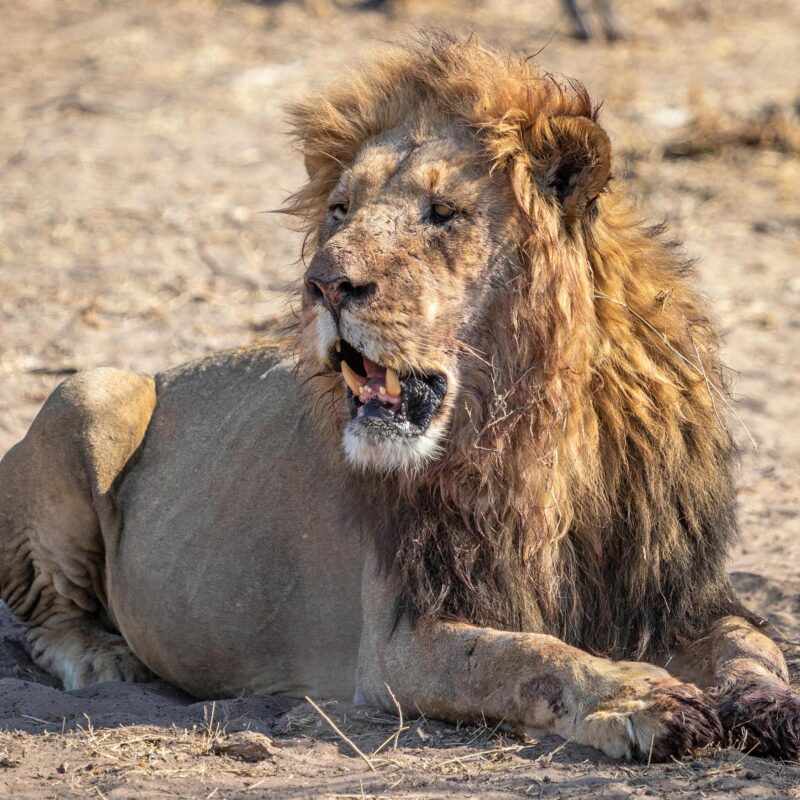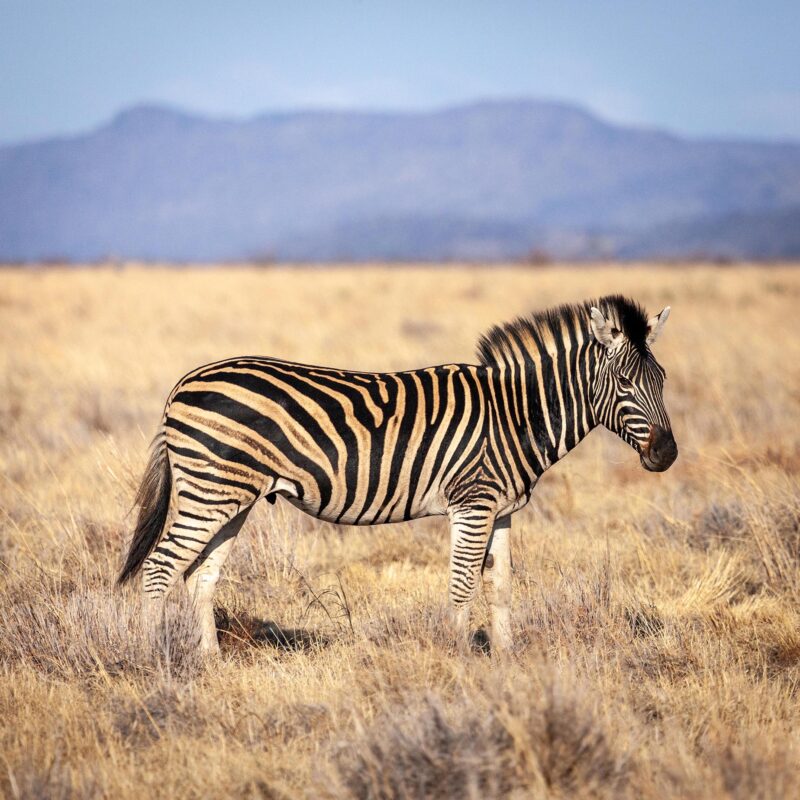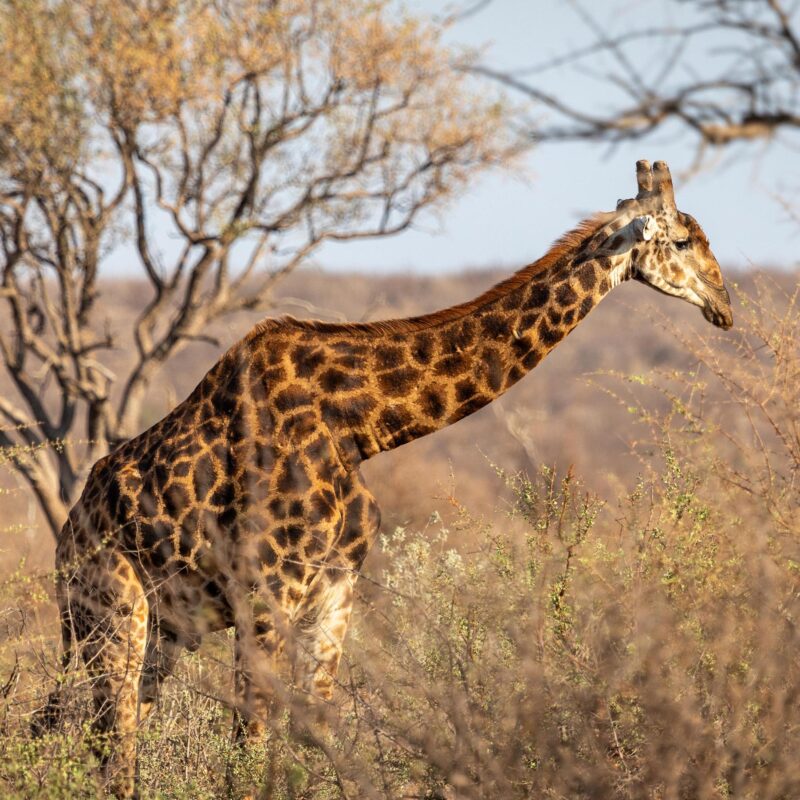Madikwe Game Reserve is one of the few reserves in Southern Africa classified as malaria-free. Located in South Africa along the Botswana border, 20 kilometres from Gabarone, the reserve lies within a transition region between lowveld bushveld and the Kalahari thornveld. As a result, the region is home to a tremendous diversity of fauna and flora – 86 mammals, 420 bird species and 105 tree species – including the black and white rhino, buffalo, elephant, lion, leopard, cheetah and wild dog.
Geographically the region has enormous volcanic intrusions known as Inselbergs, wide open plains and the riverine environment along the Marico River in the east of the reserve. The entire Madikwe Game Reserve has been enclosed in a 150km perimeter fence which has been electrified to prevent the escape of elephants and the larger predators. There are several entrances to the Reserve, namely the gates of Abjaterskop, Wonderboom, Tau, Derdepoort and Molatedi.
The Madikwe Game Reserve is managed by the North West Parks and Tourism Board (NWPTB), which was formerly the Bophuthatswana National Parks, a conservation organisation that is well known for its pioneering approach to people-based wildlife conservation which it has practiced since the late 1970s.
The name Madikwe translates to ‘a place of blood’, ‘the crocodile’, and ‘wealth’ in the indigenous languages of the area and as such is synonymous with wilderness. The Madikwe Game Reserve has a rich heritage, being first home to the ancient San people, and then the migrating Nguni tribes moving slowly more to the South. Later, missionaries and cattle farmers tried to make a living in this rugged terrain. The reserve itself was born out of a sense of social responsibility – as a tactic to save the area from poverty. The communities in the area have not only been involved in contributing to the project but have also benefited greatly from the jobs that the reserve and its lodges have created.
The Madikwe Game Reserve has a unique conservation success story behind it. Before 1994 it was arid, cattle grazing land. The 75,000-hectare reserve was painstakingly restored from arid, cattle grazing land to its rich natural environment. It was created through the collective effort of government, communities, and investors.




